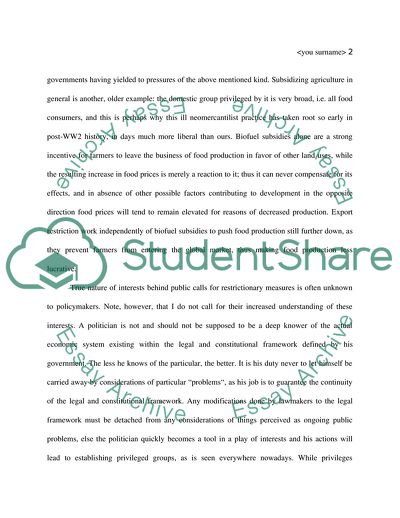Cite this document
(Export Restrictions and the Food Crisis Essay Example | Topics and Well Written Essays - 2000 words, n.d.)
Export Restrictions and the Food Crisis Essay Example | Topics and Well Written Essays - 2000 words. https://studentshare.org/macro-microeconomics/1722401-export-restrictions-and-the-food-crisis
Export Restrictions and the Food Crisis Essay Example | Topics and Well Written Essays - 2000 words. https://studentshare.org/macro-microeconomics/1722401-export-restrictions-and-the-food-crisis
(Export Restrictions and the Food Crisis Essay Example | Topics and Well Written Essays - 2000 Words)
Export Restrictions and the Food Crisis Essay Example | Topics and Well Written Essays - 2000 Words. https://studentshare.org/macro-microeconomics/1722401-export-restrictions-and-the-food-crisis.
Export Restrictions and the Food Crisis Essay Example | Topics and Well Written Essays - 2000 Words. https://studentshare.org/macro-microeconomics/1722401-export-restrictions-and-the-food-crisis.
“Export Restrictions and the Food Crisis Essay Example | Topics and Well Written Essays - 2000 Words”. https://studentshare.org/macro-microeconomics/1722401-export-restrictions-and-the-food-crisis.


